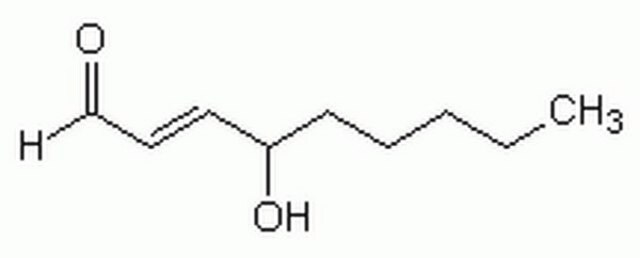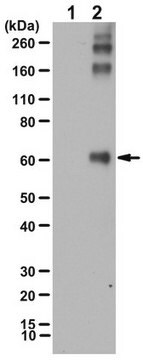H9538
HNE-DMA
hexane solution, ≥85% (GC)
Synonyme(s) :
(E)-4-Hydroxynonenal-dimethylacetal, 4-HNE-DMA
About This Item
Produits recommandés
Niveau de qualité
Pureté
≥85% (GC)
Forme
hexane solution
Conditions d'expédition
dry ice
Température de stockage
−20°C
Chaîne SMILES
CCCCCC(O)\C=C\C(OC)OC
InChI
1S/C11H22O3/c1-4-5-6-7-10(12)8-9-11(13-2)14-3/h8-12H,4-7H2,1-3H3/b9-8+
Clé InChI
ATGIHMSJAARJTF-CMDGGOBGSA-N
Actions biochimiques/physiologiques
Notes préparatoires
Mention d'avertissement
Danger
Mentions de danger
Conseils de prudence
Classification des risques
Aquatic Chronic 2 - Asp. Tox. 1 - Flam. Liq. 2 - Repr. 2 - Skin Irrit. 2 - STOT RE 1 Inhalation - STOT SE 3
Organes cibles
Central nervous system, Nervous system
Code de la classe de stockage
3 - Flammable liquids
Classe de danger pour l'eau (WGK)
WGK 3
Point d'éclair (°F)
-14.8 °F - closed cup
Point d'éclair (°C)
-26 °C - closed cup
Équipement de protection individuelle
Eyeshields, Faceshields, Gloves, type ABEK (EN14387) respirator filter
Certificats d'analyse (COA)
Recherchez un Certificats d'analyse (COA) en saisissant le numéro de lot du produit. Les numéros de lot figurent sur l'étiquette du produit après les mots "Lot" ou "Batch".
Déjà en possession de ce produit ?
Retrouvez la documentation relative aux produits que vous avez récemment achetés dans la Bibliothèque de documents.
Les clients ont également consulté
Notre équipe de scientifiques dispose d'une expérience dans tous les secteurs de la recherche, notamment en sciences de la vie, science des matériaux, synthèse chimique, chromatographie, analyse et dans de nombreux autres domaines..
Contacter notre Service technique











